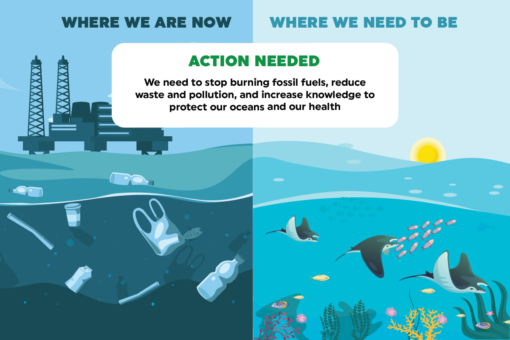
Globally, around half a billion people earn their living through fisheries, mostly small-scale. Coral reefs protect and nurture commercially important fishes while regulating both the quality and quantity of the seafood. In many African, South Asian and small island countries, more than half of the protein in the diet is from fish. The warming and acidification of oceans have led to an overall reduction in fish catch and have also adversely affected fisheries and shellfish aquacultures. This decrease in catch amounts can increase the price of seafood, forcing people to resort to affordable and unhealthy options, which can manifest as obesity. In others, who do not have access to alternative options, this reduced availability of seafood might further aggravate undernutrition.
Tourism is strategically important in coastal areas, though the economic benefits are not shared equitably. Poorly maintained and polluted coastal regions can lead to distorted perceptions of blue spaces and a sense of disconnection from nature. This can negatively impact the limited time children and adults spend outdoors and further deteriorate their physical and mental health. Extreme weather events such as coastal floods due to rising sea levels lead to significant damage to infrastructure and livelihoods and poor physical and mental health outcomes.
The UK has a global responsibility in developing and supporting sustainable blue economies in vulnerable countries through financial investments and the provision of resources as necessary. The UK has invested £500 million in the Blue Planet fund to deliver better outcomes for climate change and biodiversity, reduce marine pollution and ensure sustainable seafood practices in developing nations. Interventions targeted at protecting and restoring marine ecosystems also help mitigate the climate crisis and reduce health inequalities. Inclusive decision-making, such as consulting local and Indigenous people in decision-making with regard to the oceans and coastal ecosystems, has better, just and sustainable outcomes.

Strengthen international financial flows and capacity-building with inclusive decision-making to support and implement innovative multidisciplinary solutions to save marine ecosystems.
This can be done through targeted reduction of different kinds of pollution, overconsumption and waste, and by providing positive incentives to local communities to protect, conserve and restore marine ecosystems. Identification and scaling up of successful local innovations should be done wherever appropriate.
